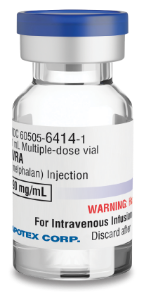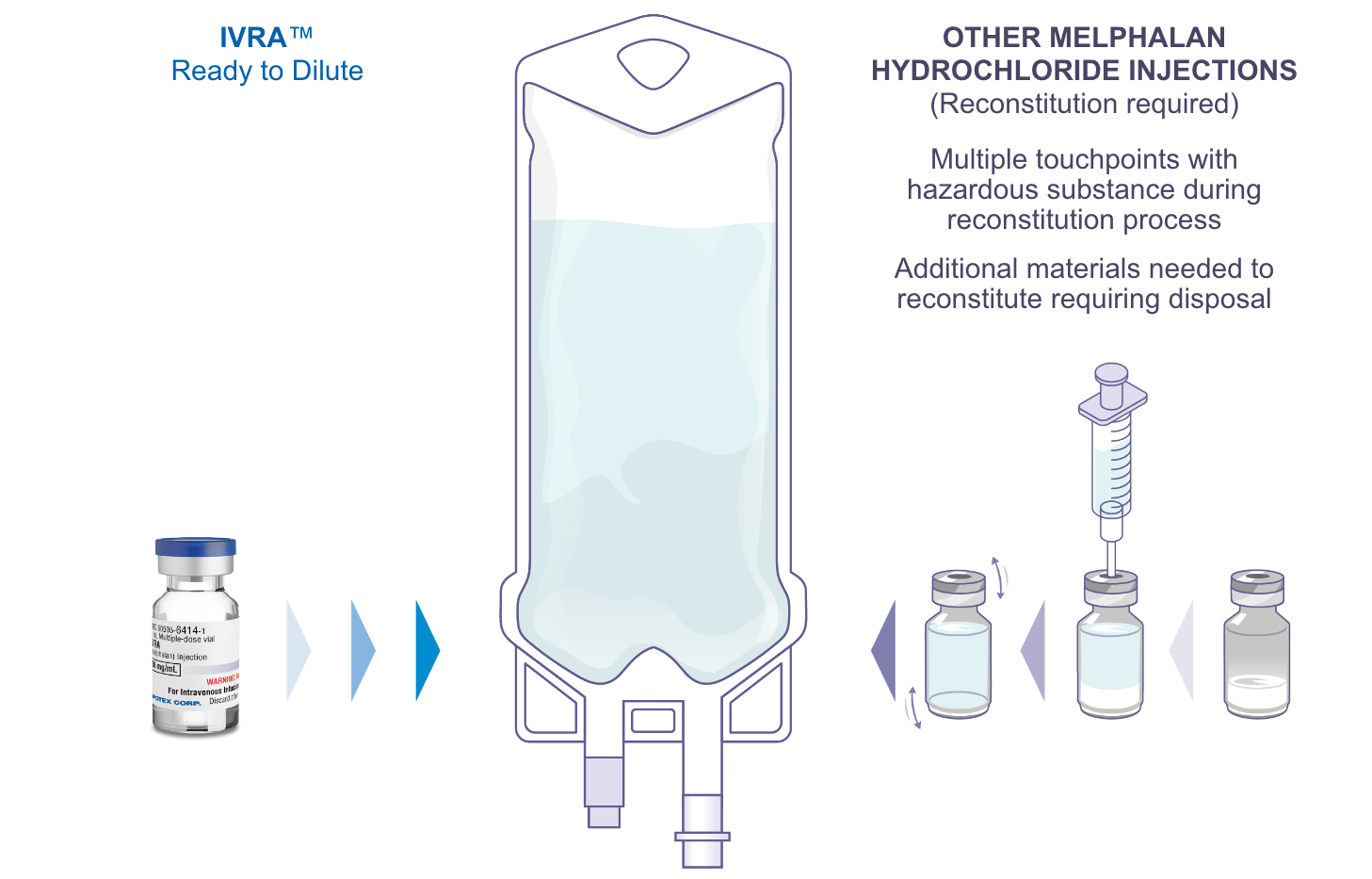This website contains information about IVRA™ (Melphalan) Injection 90 mg/mL.
It is intended for US healthcare professionals only.

PLEASE CONFIRM THAT YOU ARE A US HEALTHCARE PROFESSIONAL






The most common adverse reactions observed in at least 50% of patients with multiple myeloma treated with melphalan were neutrophil count decreased, white blood cell count decreased, lymphocyte count decreased, platelet count decreased, diarrhea, nausea, fatigue, hypokalemia, anemia, and vomiting.
Please click here for Full Prescribing Information, including BOXED WARNINGS, for IVRATM (Melphalan) Injection 90 mg/mL.